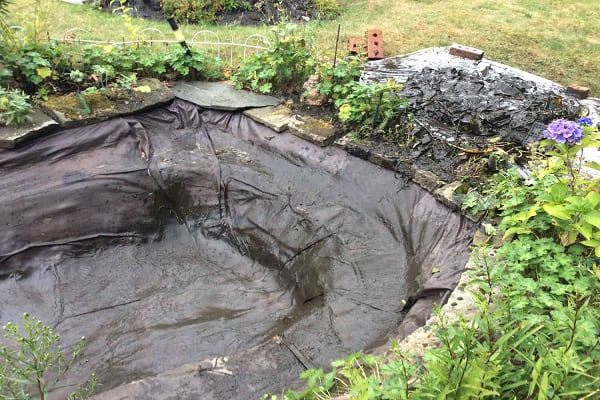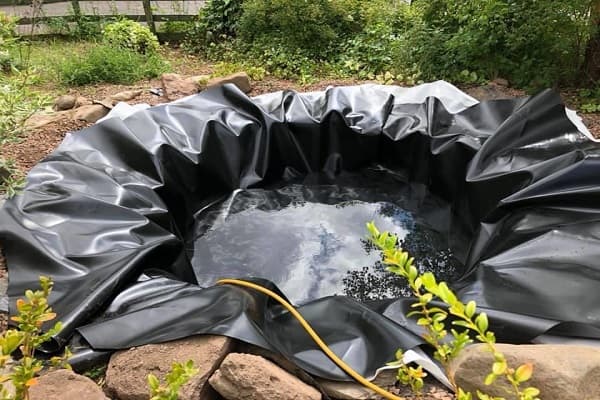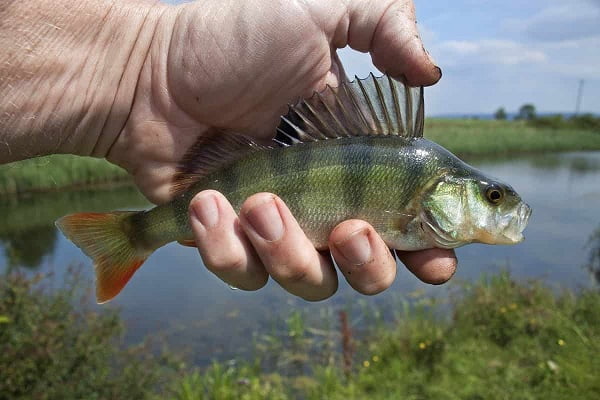How To Stop Your Pond From Overflowing [Pond Overflow Fix]
Are you enjoying the benefits of having a pond in your backyard but frustrated by the persistent problem of water overflow?
You’re not alone. This is the issue that over 75.34% of pond owners face. The truth is, keeping the water in your pond at just the right level requires diligence and forethought.
In this blog post, we will discuss efficient methods and useful hints for keeping your pond from overflowing and preserving a healthy ecology for your fish, so keep scrolling.
But before we dive into how to stop your pond from overflowing, let’s get to know what overflow is in relation to fish ponds.
What is pond overflow?
A pond requires just the right quantity of water to stay healthy for your fish. Their common sources of water supply are rain, springs, or a nearby creek.
But what happens if the incoming water exceeds the pond’s capacity? This is where pond overflow comes into play.
Pond overflow occurs when the water level in a pond rises above its normal capacity and spills over the edges. At this point, the pond can’t contain all the water anymore, so the water cascades over the sides and into the surrounding area.
There are numerous reasons you shouldn’t want your pond to overflow, and we will take a look at these reasons in case you never knew.
Why you shouldn’t want your pond to overflow
Having a pond in your yard and taking care of it may be a relaxing and enjoyable hobby. However, you must take precautions to prevent your pond from overflowing.
The health of your pond, your fish, the plants around it, and the general appearance of your yard can all be negatively affected by an overflowing pond. Let’s look at some of the other reasons you don’t want your pond to overflow.
Your pond fish will escape
When a pond overflows, one of the first things to worry about is whether or not your fish will escape.
Many pond owners’ foremost concern is the health of their fish. Fish are able to swim out of the pond and into surrounding streams and drainage systems when water levels rise and overflow the pond’s borders.
This poses a serious threat to the fish, as they may not be able to adapt to new settings or avoid predators. Maintaining a healthy water level in your pond is essential to keeping your fish population contained and secure.
The surrounding plants will suffocate
Suffocation of nearby vegetation is a potential consequence of an overflowing pond.
When the pond’s water overflows into the surrounding land, it can cause the ground to get waterlogged and the soil to become saturated.
The roots of plants can be suffocated by too much water and flooding for too long. Root rot, poor growth, and ultimately plant mortality can result from insufficient oxygen.
Pond overflow due to flooding could also alter the soil’s chemical makeup, reducing the vigor and health of neighboring plants.
Your yard will look very messy
Pond overflow may rapidly transform a neat and tidy yard into a chaotic and unpleasant area.
Overflow from the pond might cause flooding and dirt, making the region look unappealing. The saturated ground and resulting puddles and debris can make it dangerous to walk on when there is too much water on the ground.
Because of this, your yard will look worse overall, and you won’t be able to use it to its full potential. Maintaining a healthy water level in your pond is an easy way to keep your yard looking neat and tidy.
Ways to stop your pond from overflowing
In order to keep your pond healthy, protect your plants, and keep your yard looking nice, you need to keep it from overflowing. The following measures can help you keep your pond from overflowing.
Pond overflow system
Put in place an overflow system for your pond so that you don’t have to worry about flooding whenever it rains heavily.
The potential for overflow and floods can be reduced by constructing a spillway or overflow pipe to divert water from the pond.
Determine if your pond is susceptible to overflowing or Not
It’s crucial to determine if your pond is at risk of overflowing before taking any preventative steps.
The location, size, and amount of rainfall in your area are all potential contributors to your pond’s overflow.
Always remove algae and dirt from the drainage pipes
Regular cleaning of the pond’s drainage pipes to remove algae and dirt is an important part of pond upkeep.
Algae and other debris in the pipes can reduce water pressure and increase the likelihood of pond flooding if they are allowed to build up over time.
Drainage pipes should be checked and cleaned on a regular basis to guarantee efficient water flow. This will keep the system running smoothly and reduce the likelihood of an overflow.
Cover the pond
You can keep excess rainwater out of your pond by using a pond cover when there is a lot of precipitation.
A proper cover will act as a barrier, limiting the amount of precipitation that can flow straight into your pond and also preventing overflow for pond.
If you want to keep the cover in place no matter how strong the wind gusts, pick one made of a strong, waterproof material. The likelihood of your pond overflowing can be greatly reduced if the water supply is restricted.
Discharge water from the pond when not in use
If you observe that your pond’s water level is always high and approaching the overflow point, you may want to consider draining some of the water to prevent overflow for pond.
You can use a pump to remove water from the pond. Avoid having any negative influence on the local ecosystem or water sources by following water discharge laws.
Build your garden pond on higher ground
When building a garden pond, it is preferable to do so in a raised location since this will reduce the likelihood of pond overflow due to flooding.
If you construct a pond on higher ground, less rainwater will likely flow into it from lower-lying areas. Because of its higher elevation, this area is protected from flooding and has more efficient water management.
How to protect your pond fish from flooding
In the event of heavy rain or pond flooding, it is essential that your fish be protected. In order to keep your pond fish safe during such occurrences, here are some effective measures to help safeguard your pond fish;
Monitor Weather Conditions
Keep an eye out for warnings of heavy rain or flooding, and check the local weather forecast regularly. You can avoid last-minute panic by being proactive and well-prepared for pond overflow due to flooding.
Create a sheltered area
Another way to keep your fish safe is by creating a sheltered area. Give your fish somewhere to go during a flood by making a safe haven in your pond.
This can be accomplished by installing floating or submerged structures in the water that provide shelter and safety from the swift current.
Some extra tips to help prevent your pond from overflowing
Here are extra tips on how to stop your pond from overflowing;
Put gravel or nets in the drainage pipe
You can further reduce the likelihood of debris and dirt blocking the drainage pipe by inserting a layer of coarse gravel or a filtering net into it.
Pond overflow due to flooding can be avoided, in part because larger debris is captured and kept from blocking the water’s path.
The edges of the pond should be higher
Make the sides of your pond higher than the middle by planning the layout carefully.
Water is naturally contained by this little elevation difference, lowering the likelihood of overflow during heavy rainfall. You can accomplish this by including slopes or making the borders higher.
Check the entire pond after the rain
After heavy rain, it’s a good idea to check your entire pond to make sure everything is in place. Keep an eye out for overflowing water, signs of erosion, and signs that structures have been undermined or damaged.
Take care of problems as soon as possible to stop them from getting worse and keep the pond in good shape.
Conclusion
Pond overflow can be disastrous. It can cause your fish to escape, as well as smother any nearby plants, make a mess of your yard, and encourage the proliferation of disease- and insect-causing organisms.
By being proactive to prevent overflow and maintain an adequate water level, you can protect the health, longevity, and aesthetic value of your pond and the surrounding landscape.
Feel free to use the tips from this blog post to prevent your pond from overflowing.
FAQs
An overflow pipe or outlet that drains water away from the pond during heavy rain is a good idea to protect your pond from overflowing.
Routine upkeep is essential to avoid pond overflow. At least once a year, you should clean up your pond and get rid of any dead leaves or other debris that may have accumulated.
Overflow problems may be related to pond size. Pond overflow is more likely to occur if your pond is small in comparison to the amount of water that flows into it.

![What Is Pond Sludge, Causes and How To Remove It? [Practical Guide]](https://pondmemo.com/wp-content/uploads/2023/05/pond-sludge-causes-and-removal-1-img.jpg)

![How Much Does It Cost To Dig A Pond? [Rough Estimate]](https://pondmemo.com/wp-content/uploads/2023/05/how-much-does-it-cost-to-dig-a-pond-img_1-img.jpg)


